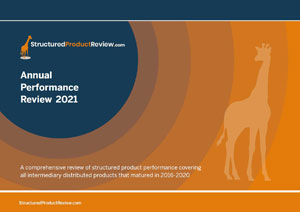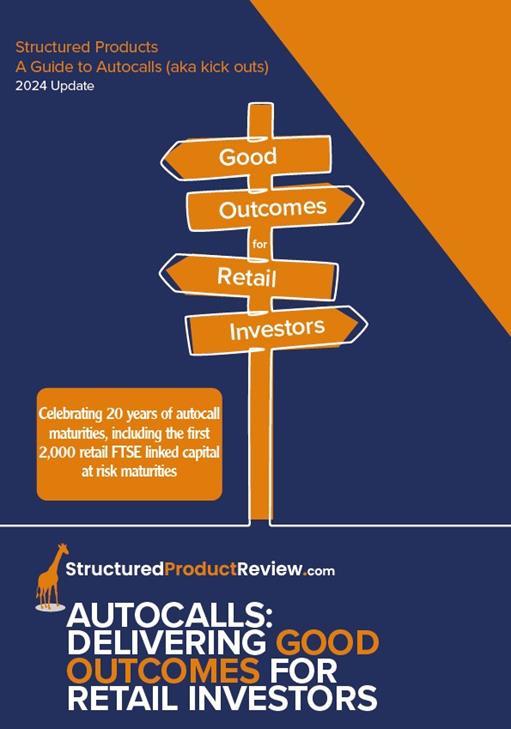Ian Lowes, 30/10/2024
I am sure many advisers have met more than a handful of new retirees hesitant to continue investing because they believed they were ‘too old’ for medium to long-term commitments, only to find themselves still investing at age 70, 75, or 80. It’s crucial that we do not write off our clients or discourage them from investing when it is still appropriate or desirable for them to do so. After all, who are we to dictate when someone’s life – particularly their investment life – is over?
Whilst admittedly extreme, I recall a conversation with a 95-year-old client some years ago, who took great offence at the suggestion that perhaps she no longer needed to consider investing. This particular lady was adamant that she was not too old to do anything, and investing was certainly no exception. The fact that she was investing in a structured investment with a maximum term of 10 years did not deter her, as she fully understood that the product could mature after as little as two years. Having experienced multiple structured investments over the years, she was very appreciative of how they, alongside the rest of her portfolio, had served her well. In fact, that specific product did mature after two years, and she promptly reinvested the proceeds into another, which also matured successfully. This raises the question: how old is too old when it comes to investing?
Investing, of course, requires a certain level of nerve. For some in their later years, the potential consequences of investments not performing as hoped may cause unnecessary stress. In these cases, a quieter, more predictable retirement may indeed be more appealing. However, with longer life expectancies, many people need to ensure their financial security stretches well beyond what they once considered would be their 'later years’. Investing can of course play a critical role in safeguarding against the risk of outliving their savings.
Additionally, it’s important to remember that many elderly investors are not necessarily investing for their own benefit. They may have more than enough to see them through their remaining years, regardless of how inflation or unexpected expenses might affect their finances. Instead, they are often investing with the long-term goal of building wealth for their beneficiaries. The beneficiaries, in turn, are not required to cash in these investments but can, if they wish, hold them on their own account for the long term after the death of the donor.
Over more than five decades of giving financial advice, we have encountered many clients who almost live for their investments. One memorable example was a client who was given a terminal diagnosis shortly after investing in a business property relief scheme. Surviving the two-year qualifying period which would allow his family to benefit from the inheritance tax savings became his goal. It was a close call, but through what his family suggested was pure determination, he surprised the oncologist and did survive the required period albeit by just a few weeks, achieving a 40% inheritance tax saving on the original investment.
Remaining engaged with financial planning and investments can offer a sense of control and purpose, even in older age. None of us truly knows how we will feel in our later years until we get there. Some may reach a point where they no longer care about investments or cannot bear the emotional toll of taking on risk. But for others, investing should be a continuous endeavour throughout life. Since the only certainty in life is death – and none of us knows exactly when it will happen – financial planning will always be a subjective art.
While there may be examples of individuals investing in later life when they perhaps shouldn’t have, or who struggled with the associated risks, there are undoubtedly far more examples of people who have invested wisely, benefiting from years of positive performance that enhanced both their lives and the value of their estates for their beneficiaries.
So whilst no doubt a controversial subject and we need to be extremely cognisant of potentially impaired comprehension and other vulnerabilities my view is that only the client, ideally with the assistance of an experienced adviser, knows how old is too old when it comes to investing.
Structured investments put capital at risk.
Also in this section
- How old is too old? Are structured products to die for?
- Product focus - October 2024
- Q3 2024 Issuance
- Q3 2024 maturity results
- A share of spread bets on steroids?
- Product focus - September 2024
- Maturities of the month - August 2024
- Right on time
- Product focus - August 2024
- Keep calm and zoom out
- 2,000 and counting
- Q2 2024 maturity results
- 20 years of autocall maturities
- Product focus - June 2024
- Fixed income or interest?
- Maturities of the month - May 2024
- The barrier debate - revisited
- Product focus - April 2024
- Maturities of the month - April 2024
- Time to call
- I don't believe markets are ever too high for Structured products!
- Notes on counterparty exposure
- Return of Nikkei
- Q1 2024 issuance
- Q1 2024 maturity results
- Structured Products – AAAAAGH!
- Hop in CIBC
- Re-enter Santander
- How to build a financial fortune - revisited
- Issuance in 2023
- Where's the risk?
- Questionable offerings
- Challenging the case against structured products - 'Loss of dividends'
- Navigating the investment landscape
- Challenging the case against structured products - Counterparty risk
- 6-year autocalls approaching final destination
- 1,750 FTSE capital at risk autocall maturities
- The leopard that changed her spots
- Q3 2023
- Challenging the case against structured products - Keydata
- Dilemmas for UK IFA's and the unique role of Structured Products
- 'High charges'
- Precipice bonds
- Intro
- FTSE 100 Contingent Income
- Indexing the indices
- Something different
- Investing through volatility
- 100 10:10s
- The best or worst?
- The 10%/25% 'Rule' that never was
- Structured products and the yield curve
- Fixed income: Capital at risk?
- Prospects for UK inflation - and fun with A.I!
- The Barrier Debate
- More Deposits for now
- Last of the Americans
- What if?
- Time heals all wounds, we hope...
- How to diversify portfolios using structured products?
- The Proof Is In The Pudding...
- Debunking Structured Misconceptions
- 1,500 FTSE Capital-at-Risk Autocall Maturities
- Q3 2022 Maturity Results
- What do we prefer?
- Deposits vs Capital ‘Protected’
- There’s time yet…
- Where did you invest your clients?
- A Six-Month Reflection
- Return of the Rev Con
- Happy 2nd Birthday FTSE CSDI
- Q2 2022 Maturity Results
- The best and worst yet still the best
- Critique my Suitability - Mariana 10:10 Plan June 2022 (Option 2)
- 10/10 for 55 10:10’s
- Q1 2022 Maturity Results
- 'How to build a financial fortune': a follow up
- Critique my Suitability - Mariana 10:10 Plan April 2022 (Option 2)
- 2021 Capital-at-Risk Autocall Maturity Review
- An unwelcome return...
- CSDI's First Birthday
- Bon Anniversaire
- Introducing the FTSE Custom 100 Synthetic 3.5% Fixed Dividend Index
- Q3 2021 Maturity Results
- Critique my Suitability - Mariana 10:10 Plan October 2021 (Option 2)
- Blurring the lines...
- Beware of false knowledge; it is more dangerous than ignorance
- Good news, bad news...
- Certainty is Certainly a Benefit
- Critique my Suitability - Mariana 10:10 Plan September 2021 (Option 2)
- A Twenty-Year Progression
- Q2 2021 Maturity Results
- Nine 8:8s Post Positive Returns in Falling Markets
- Critique my Suitability
- Q1 2021 Maturity Results
- Morgan Stanley’s Marvelous Maturity Medley
Current Products
We review the UK's retail structured investment sector, providing pertinent support for Professional Advisers and relevant research tools.
View all ⟶


